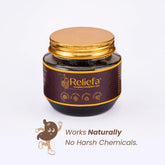Acne
Acne in Ayurveda – Understanding 'यौवन पिड़िका'
Acne is a chronic inflammatory condition of the pilosebaceous units — the hair follicles and sebaceous glands. It primarily arises due to excess sebum production, bacterial colonisation by Cutibacterium acnes, hormonal imbalance (especially androgens), and abnormal keratinisation that blocks pores. Stress, certain cosmetics, medications, and diet can aggravate acne further. Conventional treatments include topical retinoids, antibiotics, and hormonal therapies, which help reduce inflammation and bacterial load, but the recurrence incidence of the condition is still high.
Ayurvedic Viewpoint of Acne
According to Ayurveda, Pitta dosha plays a central role in acne, as it governs heat, hormones, and metabolism. When aggravated, Pitta combines with Kapha (responsible for stickiness and oiliness) and Vata (causing dryness and inflammation), leading to red, inflamed, pus-filled eruptions on the skin.
- Pitta imbalance → triggers inflammation, redness, and hormonal activity.
- Kapha imbalance → increases sebum production and blockages.
- Vata imbalance → causes roughness, uneven texture, and post-acne marks.
This is why Ayurveda refers to acne as "Yuvana Pidika" (eruptions of youth), as it often arises due to aggravated doshas during puberty, stress, or poor lifestyle habits.
Common Causes (Nidana) of Acne
Ayurveda attributes acne to faulty Ahara (dietary habits) and Vihara (lifestyle) that disturb the balance of doshas:
- Excessive intake of spicy, oily, fried, and junk food.
- Irregular eating habits and late-night meals.
- Suppression of natural urges and disturbed sleep patterns.
- Stress, anger, and emotional imbalance (Pitta aggravating factors).
- Hormonal fluctuations during adolescence or menstrual cycles.
- Overuse of chemical cosmetics and poor skin hygiene.
Symptoms and Presentation
- Small to large red or blackish eruptions on the face, chest, or back.
- Pain, burning, or itching sensations in affected areas.
- Pus formation, scarring, and post-inflammatory pigmentation.
- Psychological impact – reduced self-confidence, social anxiety, and stress.
Acne's Complications if Ignored
If left untreated, acne may lead to:
- Deep scars and permanent pigmentation
- Chronic skin inflammation
- Emotional distress and lowered self-esteem
- Aggravation of the underlying dosha imbalance, making the skin prone to repeated breakouts
Ayurvedic Treatment for Acne
Ayurveda focuses on treating acne by purifying the body, balancing the doshas, and promoting natural skin health.
1. Shodhana with Panchkarma (Cleansing & Detoxification)
- Virechana (Purgation): Removes excess Pitta toxins from the body.
- Raktamokshana (Bloodletting): Helps purify blood and reduce inflammatory toxins.
- Basti (Medicated Enema): Balances Vata, improves digestion, and prevents recurrence.
2. Shamana (Pacification & Supportive Care through medicines)
Formulations containing herbs such as Neem, Manjistha, Haridra, Sariva, and Triphala purify the blood, reduce inflammation, and restore skin health.
3. Dietary Recommendations
- Favour fresh, light, cooling foods like green vegetables, fruits, and whole grains.
- Avoid fried, spicy, sour, and fermented foods.
- Include Amla, Aloe vera, and Ghee for natural cooling and detoxification.
4. Vihara (Lifestyle Guidelines)
- Maintain a regular sleep and wake cycle.
- Practice stress management through yoga, pranayama, and meditation.
- Avoid excessive cosmetic use and maintain gentle skin hygiene.
Home Remedies in Ayurveda for Acne
Triphala Kashaya Face Wash
Preparation: Use Triphala Kashaya to wash the face, boil 1 tsp Triphala powder in 2 cups of water, reduce to half, and strain. Wash your face with this decoction once daily.
Benefits: The remedy acts as a local detoxifier, purifies blood and prevents acne.
Haldi and Neem Lepam
Preparation: Grind fresh neem leaves, mix turmeric (Haldi/Haridara) powder with sandalwood paste and rose water. Apply as a face pack for 15–20 minutes, then wash off.
Benefits: Neem and Turmeric are rakta shodhaka (blood purifier) and anti-inflammatory; sandalwood cools Pitta and reduces redness on the face due to acne.
Aloe Vera Gel
Preparation: The most famous and effective remedy for acne is aloe vera gel application on the affected parts. Extract fresh aloe vera gel and apply it directly to acne spots.
Benefits: Aloe vera is cooling, anti-inflammatory, and Pitta-pacifying; it soothes irritated skin and promotes healing without scars.
Key Benefits of Ayurvedic Treatment for Acne
Root Cause Treatment
Treats acne by correcting internal imbalances, not just topical symptoms.
Prevents Recurrence
Detoxifies and purifies the blood to prevent recurrence.
Hormonal Balance
Balances hormonal activity naturally.
Scar Reduction
Reduces scarring and pigmentation, improving skin texture.
Overall Well-being
Enhances overall digestion, immunity, and mental well-being.
Conclusion
In Ayurveda, acne is more than a superficial skin problem—it is a manifestation of inner imbalance. By correcting diet, lifestyle, and dosha disturbances, and with the help of detoxification and herbal remedies, Ayurveda offers a safe, natural, and long-lasting solution for acne.
Frequently Asked Questions (FAQs) on Acne in Ayurveda
No. While acne is most common during adolescence due to hormonal changes, it can also occur in adults due to stress, poor digestion, lifestyle, or hormonal imbalances.
Yes, Ayurveda works on the root causes—dosha imbalance, poor digestion, and hormonal disturbances. With detox, diet regulation, and lifestyle changes, acne can be controlled and recurrences minimised.
Yes. Excessive oily, fried, spicy, and junk food aggravates Kapha and Pitta, leading to clogged pores and frequent breakouts.
Yes. Stress and irregular sleep disturb hormones and digestion, which aggravates acne. Ayurveda suggests pranayama, yoga, and meditation for relief.
Yes. Virechana (purgation) and Raktamokshana (blood purification) are highly beneficial for chronic or stubborn acne.
No. When taken in moderation internally, healthy fats like ghee and almond oil actually help improve digestion and balance doshas. It is excess fried/oily food that worsens acne, not sattvic fats.
BOOK YOUR CONSULTATION NOW
Get personalized Ayurvedic treatment for acne and achieve clear, healthy skin naturally.
Start Your Clear Skin JourneyAas Ayurveda – Revitalizing Your Body, Mind, and Spirit



